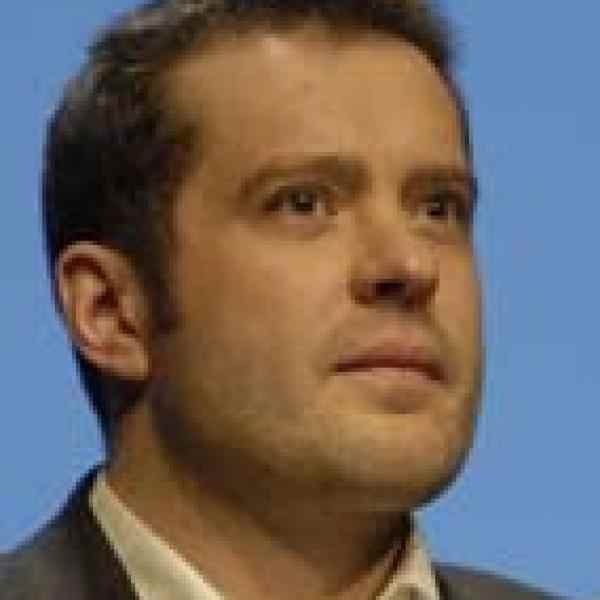With the opening of the French electricity market in 2004, Julien saw the opportunity to transform consumption behavior and to develop the country’s renewable energy capacity. In spite of all the barriers and high costs to entry, he launched Enercoop, the first energy production and consumption… Read more
With the opening of the French electricity market in 2004, Julien saw the opportunity to transform consumption behavior and to develop the country’s renewable energy capacity. In spite of all the barriers and high costs to entry, he launched Enercoop, the first energy production and consumption cooperative. Strategically reaching out to environmentally conscious consumers (through partnerships with citizen organizations, organic retailers and green banks), he mobilized citizens to become shareholders of his non-profit cooperative and purchase electricity produced entirely from renewable sources, with all profits reinvested directly back into the development of additional alternative energy sources. Julien has attracted nearly 7,000 consumers to date, and together they have managed to demonstrate that there is a viable, sustainable and scalable alternative to nuclear power.
A viable alternative
While most renewable energy producers struggle to exist in the current market for electricity, by joining Julien’s cooperative they find the support and investment they need to stay afloat and thrive. Currently, Enercoop has 55 producers who supply the cooperative with electricity. These producers benefit from the working capital of the whole cooperative, and can count on stable prices and a stable demand thanks to long-term contracts of over 20 years (vs 1 to 3 years on the speculative energy market). These producers also benefit from the fact that Enercoop can reduce the cost of accessing the EDF network by providing the energy in bulk quantities, which individual producers cannot do. Progressively, Julien is developing new renewable energy production facilities in communities across France to cover the needs of new customers. He works with communities to develop the best renewable energy source, and provides some capital for building, mostly coming from the community itself as clients are also shareholders and invest some of their savings in Enercoop. Julien is interested in creating close community ties with and local ownership over the renewable energy facilities in order to educate communities about the value of renewable energy. He is currently multiplying local branches of Enercoop—two have been created, three are in the works, and his goal is to have a branch in each of the 22 French regions, so that the entire country will be served within 5 years.
A sustainable alternative
Julien recognizes that offering alternative energy sources is not enough to shift consumers away from traditional power sources, especially if traditional sources are currently less expensive. For this reason, Julien is also very focused on reducing energy consumption. He engages citizens, producers, businesses, and local government authorities in his cooperative and helps them identify ways to reduce their consumption. As a result, even if Julien’s prices currently are about 30 percent above the market, since cooperative members consume on average 30 percent less energy their electricity bill is the same amount—and their negative impact is much lower. Enercoop also engages citizens, producers, businesses and local government authorities in understanding the need for communities to invest in renewable energy sources for a low-impact, long-term solution to France’s energy needs and to push for national policies that provide incentives for renewable sources.
A scalable alternative
Julien recognizes that to move beyond being a niche market supplier and significantly increase the number of consumers using renewable energy sources will be difficult if renewable energy prices remain well above those of the traditional energy supplier. To address this, over the next several years, he is focusing on building the number of renewable energy production sites in local communities across the country in order to provide locally produced energy that will be less expensive than energy that has to be transferred longer distances. He also will continue to help consumers reduce consumption in various ways, and push for policy change and greater investment in renewable sources. Then, in 2015, by law, the French energy producers will no longer be subsidized by the government (France is doing this to comply with European Union policy). All French producers will be required to charge market prices for electricity, creating a more level playing field for producers of renewable energy. At that time, prices of traditional producers are expected to rise. At the same time, Enercoop expects its prices to remain the same or drop. Consequently, Enercoop will have more producers and more capacity, and should be able to begin to compete to significantly increase the number of consumers using energy produced from renewable sources.
Read less



